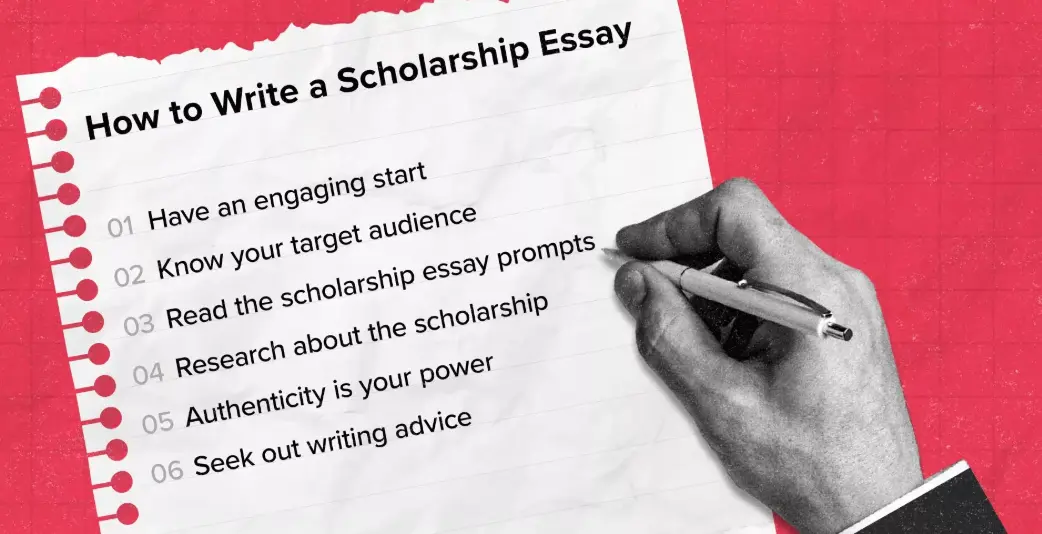
How to Write a Scholarship Essay That Stands Out: Tips and Tools
Applying for scholarships and colleges can be a challenging process, especially when it comes to writing the scholarship essay. As one of the most critical components of your application, the essay offers a chance to showcase your individuality, aspirations, and unique story. However, it also means the admission committee has likely read countless essays, making originality essential.
To make the process easier and your essay unforgettable, here’s a guide filled with valuable tools, resources, and advice.
1. Learn from Scholarship Essay Samples
Before you start writing, explore well-written scholarship essays by other students. Websites like Student Share are excellent resources where you can find examples of successful papers.
- How to Use Samples Effectively:
- Analyze the structure, tone, and content of the essays.
- Note how the writers highlight their achievements and goals.
- Use these as inspiration without copying or plagiarizing.
Remember, your essay should reflect your personality and unique story—not someone else's.
2. Use Online Writing Guides
Enhance your writing with professional advice from resources like the Harvard College Writing Center.
- What You'll Learn:
- How to craft a strong thesis statement.
- Tips for organizing your ideas effectively.
- Ways to align your essay with academic standards.
These guides help you gain confidence and ensure your essay meets high expectations.
3. Follow Formatting Rules
Incorrect formatting can undermine an otherwise excellent essay. Double-check any guidelines provided by the institution or scholarship program. For detailed formatting tips, visit Purdue Online Writing Lab (OWL), which covers styles like MLA, APA, Harvard, and Chicago.
Tip: Even if formatting seems minor, adhering to it shows attention to detail and respect for the application requirements.
4. Master General Scholarship Essay Rules
While each institution has unique requirements, there are universal principles to follow:
- Stick to the word limit.
- Address the essay prompt thoroughly.
- Use formal language and proper grammar.
For a deeper dive into these rules, consult resources like Bates College Tips to refine your approach.
5. Avoid Overused Expressions
One common pitfall is relying on generic statements like:
- “I want to be a doctor because I love helping people.”
Instead, aim for specificity and originality. Share a personal story or moment that inspired your aspirations.
Example:
"Witnessing my grandmother’s struggle with diabetes ignited my passion for endocrinology, and I aspire to bridge the gap between cutting-edge research and patient care."
To ensure your essay is truly unique, use tools like PlagTracker to identify and avoid overused phrases.
6. Carefully Read and Understand the Instructions
Misinterpreting the essay prompt can derail your application. Read the instructions multiple times to ensure clarity. If something remains unclear, don’t hesitate to reach out to the institution for clarification. It’s better to ask questions than to submit an off-topic essay.
7. Create an Outline Before You Start
An outline helps organize your thoughts and ensures you cover all key points. A standard structure includes:
- Introduction: Start with a compelling hook and introduce your main idea.
- Body Paragraphs: Highlight achievements, goals, and experiences.
- Conclusion: Reinforce your passion and summarize your aspirations.
This roadmap keeps your writing focused and prevents you from veering off track.
8. Write Clearly and Concisely
Simplicity is key when communicating your ideas. Use straightforward language and avoid overly complex sentences. Clear writing helps the committee focus on your message without getting lost in unnecessary jargon.
9. Be Authentic and Personal
Your essay should reflect your personality and values. Share personal stories that showcase your unique journey and genuine passion. However, balance your narrative with professionalism—avoid excessive informality or jokes.
Example:
"Growing up in a rural village where education was a luxury, I realized its transformative power. This scholarship would help me create similar opportunities for others."
10. Revise and Proofread
Once you’ve finished writing, take a break before revisiting your essay. Proofread for:
- Grammar and spelling errors.
- Sentence structure and clarity.
- Consistency with the essay prompt and guidelines.
Consider seeking feedback from mentors, teachers, or friends to refine your essay further.
Additional Tools to Help You
- Student Share: Access sample essays for inspiration.
- Purdue OWL: Master formatting and citation styles.
- PlagTracker: Ensure originality and avoid unintentional plagiarism.
- Harvard Writing Center: Learn writing fundamentals and advanced techniques.
Final Thoughts
Writing a scholarship essay may seem daunting, but with the right approach, you can turn it into an opportunity to shine. By leveraging these tips and tools, you’ll be well on your way to impressing the admission committee and securing the scholarship you deserve.
Good luck with your application journey!